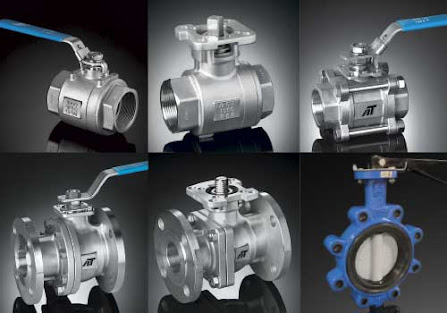Specialty Valves Market: Exploring Emerging Trends and Growth Opportunities
The Specialty Valves Market plays a vital role in numerous industries, serving as essential components for controlling the flow of liquids, gases, and other substances. These valves are specially designed to meet specific requirements in various applications, making them a critical part of industries such as oil and gas, pharmaceuticals, water treatment, and more. In this article, we will explore the Specialty Valves Market, its key drivers, challenges, and emerging trends.
Market Overview
The Specialty Valves Market has witnessed steady growth over the years, driven by the increasing demand for precision control and automation in industrial processes. These valves are engineered to provide precise control, high reliability, and long service life, making them indispensable in critical operations. Key factors contributing to the growth of the Specialty Valves Market include:
Industry Diversification: Specialty valves find applications in a wide range of industries, from petrochemicals and pharmaceuticals to food and beverage production. This diversification ensures a consistent demand for these valves.
Technological Advancements: Ongoing advancements in valve design and materials have led to improved efficiency and performance, further boosting market growth.
Stringent Regulations: In industries such as healthcare and water treatment, there is a growing emphasis on meeting stringent quality and safety standards. Specialty valves are essential for compliance.
Increasing Automation: Automation is on the rise across industries. Specialty valves play a pivotal role in automated systems by providing precise control over fluid flow, enhancing productivity and reducing human intervention.
Key Challenges
While the Specialty Valves Market shows promise, it also faces certain challenges:
High Initial Costs: Specialty valves are often more expensive than standard valves due to their specialized design and materials. This can deter cost-conscious buyers.
Maintenance Costs: Maintaining and servicing specialty valves can be costly, requiring skilled technicians and specialized tools.
Global Economic Factors: Economic downturns and geopolitical tensions can impact the market, as industries may cut back on investments in new equipment, including specialty valves.
Emerging Trends
Several trends are shaping the future of the Specialty Valves Market:
Smart Valves: The integration of IoT technology into specialty valves allows for real-time monitoring and remote control, enhancing efficiency and predictive maintenance.
Sustainability: Increasing environmental concerns are driving demand for valves that reduce emissions and minimize waste in processes, leading to the development of eco-friendly specialty valves.
Miniaturization: In industries like medical devices and electronics, there is a growing need for miniaturized specialty valves to meet the demands of compact applications.
Customization: Customers are seeking bespoke solutions to address unique challenges, leading manufacturers to offer highly customized specialty valves.
Conclusion
The Specialty Valves Market demand is poised for continued growth as industries increasingly recognize the value of precision control and automation. While challenges such as high initial costs and maintenance expenses exist, the benefits of improved performance, compliance with regulations, and enhanced efficiency outweigh these drawbacks. As technology continues to advance, the market will likely witness innovations in smart valves, eco-friendly solutions, and customized offerings, ensuring its relevance across various industries for years to come. In an ever-evolving industrial landscape, specialty valves remain a crucial element in the pursuit of efficiency, safety, and sustainability.



.png)
Comments
Post a Comment